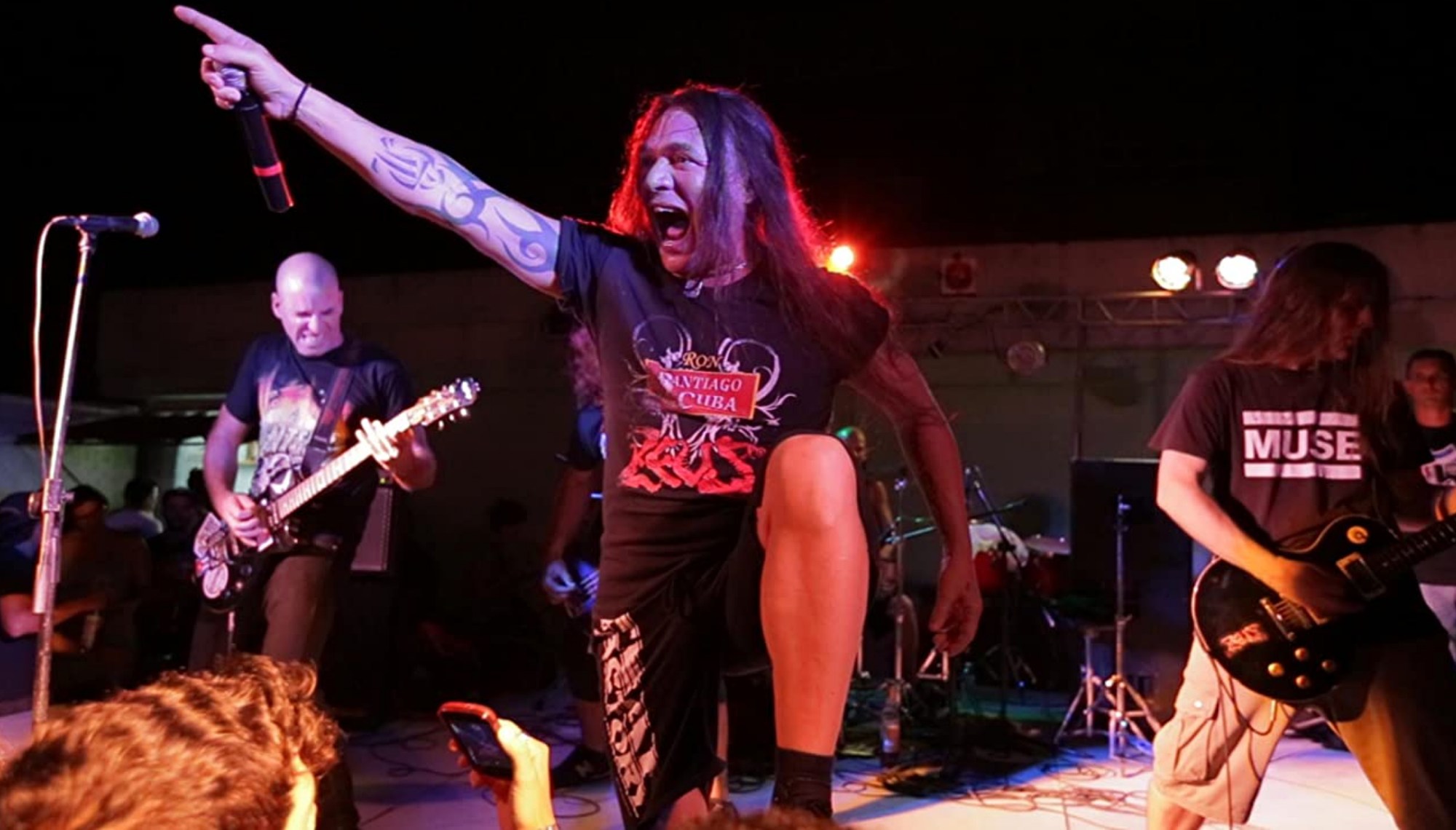
- Film
Docs: “Los Últimos Frikis”
Despite, or perhaps also because of the restrictions of Fidel Castro’s regime, in the 1980s Cuban heavy metal band Zeus became quite popular – and a target.
“They hated us because we were different. It was the music of the enemy,” says frontman Diony Arce, acknowledging the tensions of embracing a distinctly Western (read: capitalist) form of music in a communist country. The inherent friction and risk of that existence, and the band’s wild ride, receives an examination in Los Últimos Frikis, a documentary set to enjoy its bow on Topic on September 16, in addition to being available on Vimeo-on-Demand. Told against a sprawling backdrop of enormous social and political upheaval, director Nicholas Brennan’s very lived-in movie ultimately lands as a melancholic if meandering dirge, a film about not merely the limiting effects of authoritarian or coercive systems on personal choice, but also their impact on self-identity.
When Zeus formed in the 1980s, rock music in Cuba was illegal. Even in the face of repression, though, the group was hardheaded about performing live. And through these raucous public appearances, Zeus rose to notoriety as a counter-culture phenomenon. But they paid a price, collectively and individually. At the height of their popularity, the band was labeled an “ideological diversion” and broken up by government decree. Arce was arrested and spent six years in prison, from 1990-1996, for charges he still doesn’t wish to discuss.
Years later, as Cuba entered into a so-called “special period” of managed societal change, Zeus would be approved by the Ministry of Culture’s newly founded Agency of Cuban Rock (which sounds ripe for a Jack Black The School of Rock spin-off, it’s true) as one of 23 officially sanctioned groups. In celebration of their 30th anniversary, the band embarks on tour across their island homeland. Along the way, playing to dwindling crowds and discovering venues unprepared for or even unaware of their arrival, they grapple with the realization that they’ve lost fans to reggaeton and other trendier genres.
Debut director Brennan wears many hats, taking a cinematographer credit alongside Javier Labrador and editing the movie with Hossein Keshavarz. This multitasking, along with the fact that the film’s footage spans nearly 10 years, may factor into no small amount of myopia concerning its pacing and structure. Part of Los Últimos Frikis serves as an amusing tour document of the rock ’n’ roll lifestyle (certain allowances are made for getting older, like Arce “pregaming” with antacids so that he can drink rum later without it upsetting his stomach), and other parts offer up a glancing travelogue of Cuba more broadly.
Of course, torn between opportunity and obligation, Arce and his bandmates are not able to give a full and free airing of their opinions – there is a “forbidden truth” in Cuba, which no one is allowed to speak. This leads to the smart creative choice of showcasing some of Zeus’s song lyrics on the screen during concert performance footage, allowing the movie to verbalize what its subjects cannot.
But Los Últimos Frikis also suffers from a certain formlessness. Even at only 75 minutes, it has trouble creating and sustaining narrative momentum. It calls out for a sharper, outside editorial eye to help give definition to throughlines that convincingly cast Zeus as unappreciated, born-out-of-time pioneers, left to suffer the fate of headstrong dreamers in a place and time which doesn’t accommodate such instincts.
Ultimately Los Últimos Frikis, whose festival run included presentations at DOC NYC as well as the Miami and Nashville Film Festivals, isn’t for everyone. But for fans of thematically similar music-doc curios like A Band Called Death, Searching for Sugar Man, and, yes, Buena Vista Social Club, there is enough here to merit a spin. One moment really sticks with a viewer, and most piercingly embodies the commingled sadness and honor of its soul-searching subjects: when drummer Eduardo Longa visits his aging mother and she offhandedly describes her son’s lifelong love and pursuit of this type of music as his “problem.”